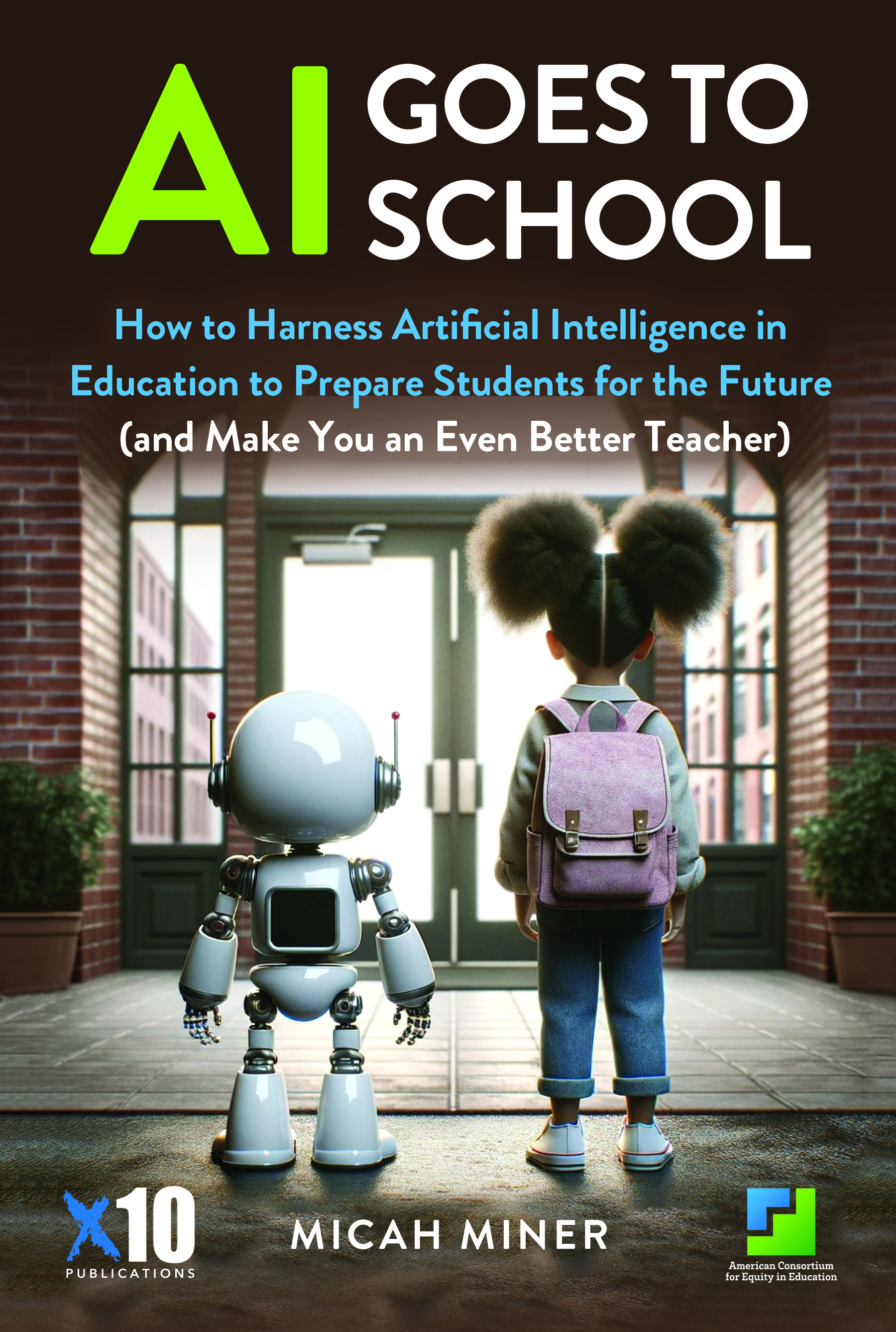Leveraging AI in K-12 Education: How Educators Can Use Artificial Intelligence to Level Up
Feb 12, 2025
Artificial intelligence (AI) is transforming education, offering teachers powerful tools to enhance lesson planning, personalize learning, and streamline assessments. As AI-powered teaching tools become more accessible, K-12 educators can leverage this technology to improve student engagement and optimize their workflow. Let's explore how teachers and administrators can use AI to strengthen instructional practices, making classrooms more effective and inclusive.
![]()
As AI in K-12 education continues to evolve, teachers and school leaders must embrace these advancements while ensuring ethical, responsible implementation. By doing so, they harness the power of AI to create more dynamic, inclusive, and effective learning environments for all students.
AI for Lesson Planning: Save Time and Enhance Creativity
One of the most significant advantages of AI in education is its ability to assist teachers in lesson planning. AI tools for educators, such as ChatGPT and other AI-driven platforms, generate lesson ideas, create differentiated instructional materials, and suggest engaging activities tailored to students' needs. Here’s how:
-
Generate Lesson Outlines: AI-powered lesson planning tools help teachers create structured outlines based on learning objectives, ensuring alignment with curriculum standards.
-
Personalize Instruction: Adaptive learning technology enables teachers to tailor lesson plans to different student abilities, providing additional resources for struggling learners while challenging advanced students.
-
Create Interactive Content: AI generates quizzes, discussion prompts, and engaging activities that enhance student participation and reinforce learning.
By integrating AI into lesson planning, educators save valuable time and focus more on student interaction and classroom engagement.
AI for Assessment: Streamline Grading and Feedback
Assessment is a critical component of education, and AI is making it easier for teachers to evaluate student performance efficiently.
AI is revolutionizing education by providing teachers with innovative solutions for lesson planning, assessment, and student engagement.
AI-powered grading tools analyze student responses, provide instant feedback, and even suggest personalized learning paths.
-
Automated Grading: AI-powered grading tools, such as AI essay evaluators and multiple-choice scanners, help teachers quickly assess student work, reducing the time spent on manual grading.
-
AI-Driven Student Performance Tracking: AI analytics track student progress over time, identifying patterns that help teachers adjust instruction to meet individual needs.
-
Personalized Feedback: AI provides instant, customized feedback on assignments, helping students understand their mistakes and improve their skills.
-
AI in Special Education: For students with special needs, AI assists in designing individualized learning programs that address their unique challenges.
By utilizing AI for assessment, teachers spend more time on instruction and student support while maintaining high-quality feedback mechanisms.
Enhance Student Engagement with AI
AI is also reshaping how teachers engage students in the learning process. AI-powered tutoring, interactive chatbots, and gamified learning experiences help make education more dynamic and accessible.
-
AI-Powered Student Engagement: Virtual assistants and AI chatbots answer students' questions in real time, providing additional support outside of classroom hours.
-
Gamification in Learning: AI-driven platforms offer gamified learning experiences that keep students motivated and invested in their education.
-
AI in Classroom Management: AI tools help monitor student participation, behavior patterns, and learning progress, allowing teachers to intervene when necessary.
By leveraging AI for student engagement, teachers create a more interactive and personalized learning environment that keeps students actively involved in their education.
The Role of AI in School Leadership and Administration
Beyond the classroom, AI is playing a crucial role in school leadership and administration. AI-driven curriculum planning tools help school administrators align instruction with state standards and improve decision-making based on student performance data.
-
Data-Driven Decision-Making: AI in school leadership helps administrators analyze trends, monitor attendance patterns, and identify areas that need improvement.
-
AI in School Safety: Advanced AI-powered security systems enhance school safety by identifying potential threats and streamlining emergency response procedures.
-
Efficient Communication: AI tools facilitate parent-teacher communication, making it easier to schedule meetings, share student progress reports, and provide updates on school activities.
By implementing AI in school administration, leaders optimize operations and create a more effective educational environment.
Ethical AI Use in K-12 Education
While AI offers many benefits, ethical considerations must be addressed to ensure responsible implementation in schools. Teachers and administrators should:
-
Prioritize student data privacy and ensure AI tools comply with FERPA and other data protection regulations.
-
Use AI as a supportive tool rather than a replacement for human instruction.
-
Educate students on the ethical use of AI, helping them develop digital literacy and critical thinking skills.
Final Thoughts: Embracing AI to Improve Teaching and Learning
AI is revolutionizing education by providing teachers with innovative solutions for lesson planning, assessment, and student engagement. By integrating AI-powered teaching tools, educators enhance their performance, save time, and create more personalized learning experiences for students. School administrators also leverage AI to streamline decision-making and improve overall school efficiency.
As AI in K-12 education continues to evolve, teachers and school leaders must embrace these advancements while ensuring ethical, responsible implementation. By doing so, they harness the power of AI to create more dynamic, inclusive, and effective learning environments for all students.
Resource
Technology Integration Specialist, Micah Miner, was at the forefront of the AI revolution, teaching teachers and leaders how to use artificial intelligence when ChatGPT was barely out of diapers. His new book, AI Goes to School, is a blueprint for harnessing the power of AI in education.






